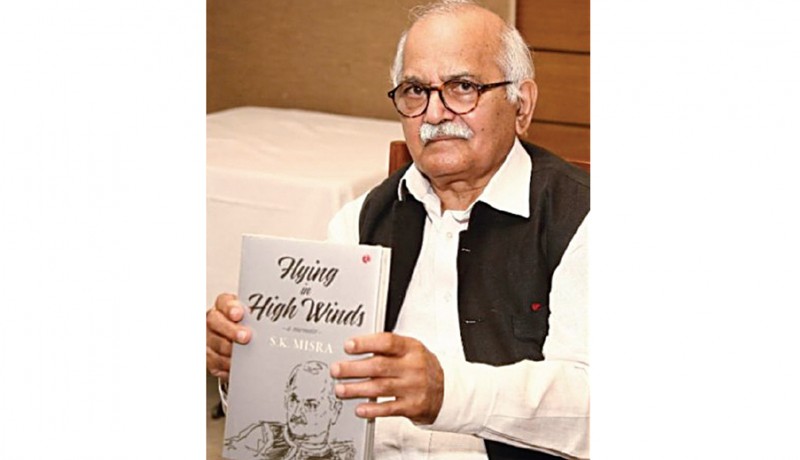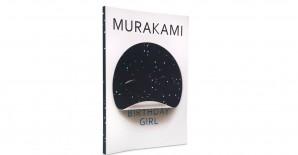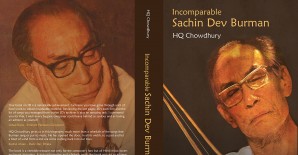
Etcetera

He has lived a life less ordinary, experiencing momentous events including the British Raj, the dawn of Independence, and the Emergency. Retired bureaucrat Shashi Kant Misra served as principal secretary to three chief ministers in Haryana prior to assuming responsibilities at the Centre as secretary in the ministries of agriculture, tourism and civil aviation. After retiring from the Centre as principal secretary to former prime minister Chandra Shekhar, Misra served the Union Public Service Commission (UPSC) and the Indian National Trust for Art and Cultural Heritage (INTACH).
Described as a “terrorist bureaucrat” by a junior officer, Misra is an alumnus of Allahabad University. He joined the Indian Administrative Service (IAS) in 1956, where he was known for his exacting standards and impeccable credentials. As chairman of INTACH, he created numerous institutions including the National Institute of Fashion Technology (NIFT), Punjab Agricultural University, Motilal Nehru School of Sports, and the Indian Trust for Rural Heritage and Development (ITRHD). In 2009, he was awarded the Padma Bhushan for distinguished civil service.
Misra, who continues to work with the ITRHD, recently released his memoir Flying in High Winds: An Autobiography (Rupa Publications; ₹ 500; 265 pages), a lucid, tongue-incheek account of his career, shedding light on the goings-on in the corridors of power, and the working of the Indian bureaucracy. In a candid interview, the 84 year-old talks to Suparna-Saraswati Puri about the future of the IAS and challenges he faced penning his memoirs. Excerpts from the interview:
What compelled you to publish your memoirs?
Frankly, I had no intention of writing my memoirs as I felt I had nothing to offer by way of sensational disclosures or scandals, and I was not sure whether the book would sell. A few publishers were constantly chasing me, without success. Then I got addicted to Facebook and posted a few humorous anecdotes from my career. I got an overwhelming response, with many of my friends and well-wishers urging me to pen my memoirs. Finally, I sat down to write, recording whatever came to my mind, finishing the memoirs in just six weeks.
Was it written purely from memory?
I had no diary to fall back on. During the Janata Party rule, I had to destroy my diary as the ‘powers that were’ at the time were trying to harass me in every possible way. I have a fairly good memory and the advantage was that at the end there was very little editing to do as the wheat had already been separated from the chaff. The chapter on Chandra Shekhar, however, was not written from memory. Some time back, someone was planning a book on former prime ministers, for which I was asked to do a piece on Chandra Shekhar. I did some research on that but the publication never came out. That material was used in my memoir.
As a writer, what was the greatest challenge?
The biggest challenge was to make the book interesting and readable with a touch of humour, while giving the reader an idea of me as a person and bureaucrat without blowing my own trumpet, and without unnecessarily damaging reputations.
Do you foresee Indian bureaucracy becoming a thing of the past?
Bureaucracy in India is the most maligned and misunderstood organ of government. It is conveniently forgotten that this steel frame has seen the country through all these turbulent years. True, there have been some failings; true, implementation or even decision-making has been slow; but that is the fault of the system, with too much political interference and an inadequate support mechanism. The failings have been blown out of proportion whereas the achievements and quiet, solid work are hardly newsworthy. The bureaucracy will not wither away. However, as the country becomes more developed, the civil services will go down lower in career options with advanced technology and other factors weighing in.
What can we anticipate from your desk next?
Part two of my memoirs.
Photo: Amar Ujala Featured in Harmony — Celebrate Age Magazine February 2017
you may also like to read
-
Cracking the longevity code
Small yet impactful choices can be game-changers, writes Srirekha Pillai At 102, there’s no stopping Chandigarh-based Man Kaur, the world’s….
-
Home, not alone
While a regulatory framework is vital for senior-care facilities, the need of the hour is to develop an ecosystem to….
-
Birthday Girl
Published in a special edition to honour Japanese master storyteller Haruki Murakami’s 70th birthday, Birthday Girl (Penguin; Rs 100; 42….
-
A huge treat for music lovers
Published as the revised and updated second edition, Incomparable Sachin Dev Burman (Blue Pencil; Rs. 599; 470 pages) the authoritative….







